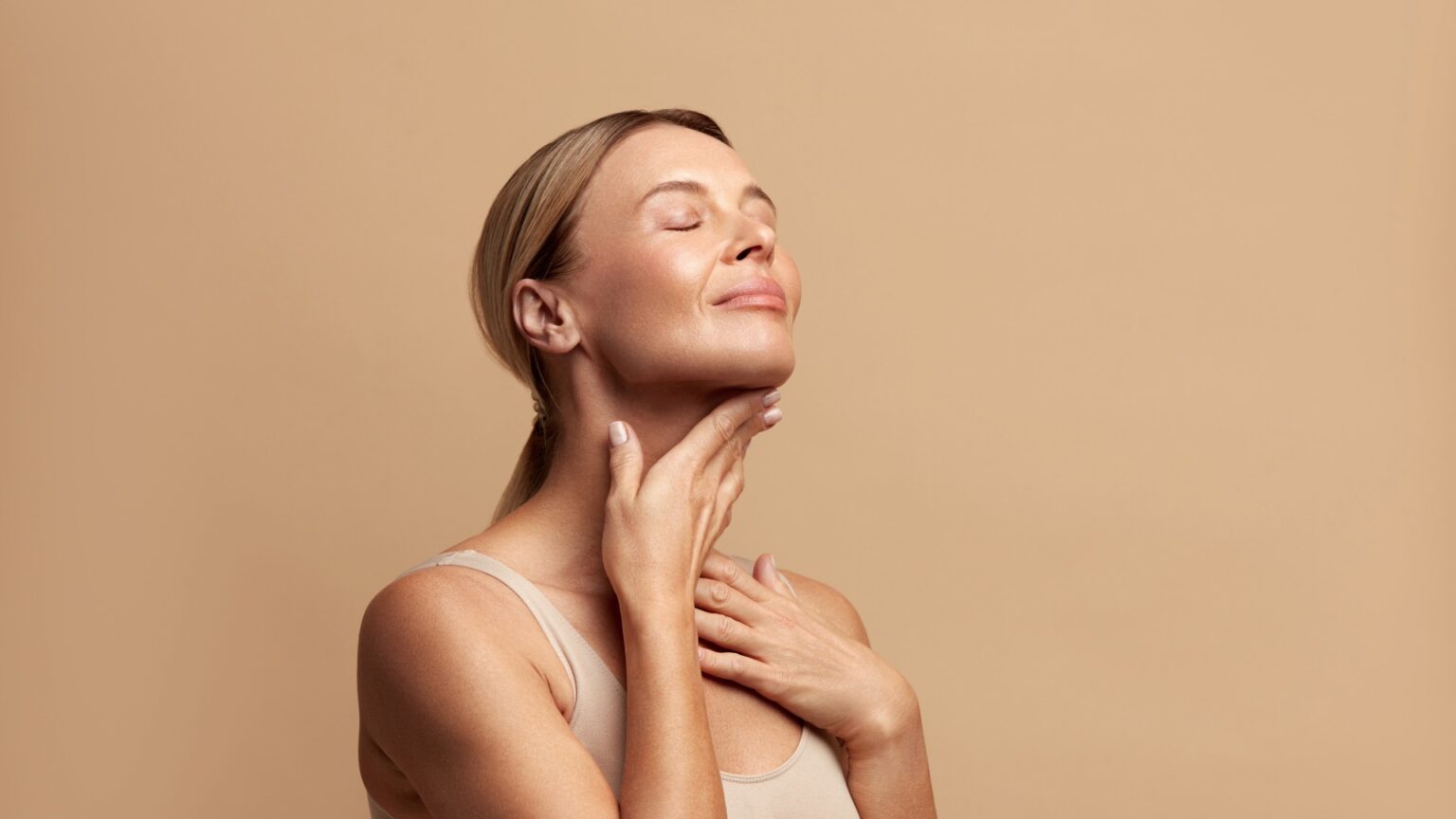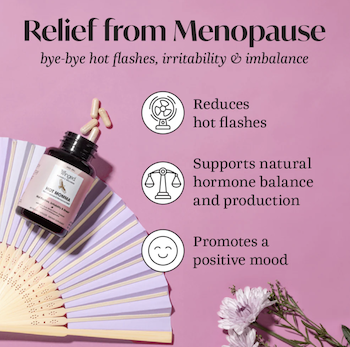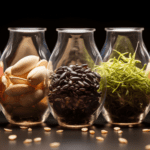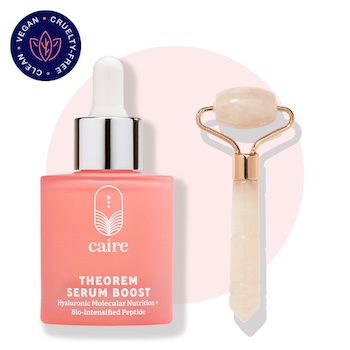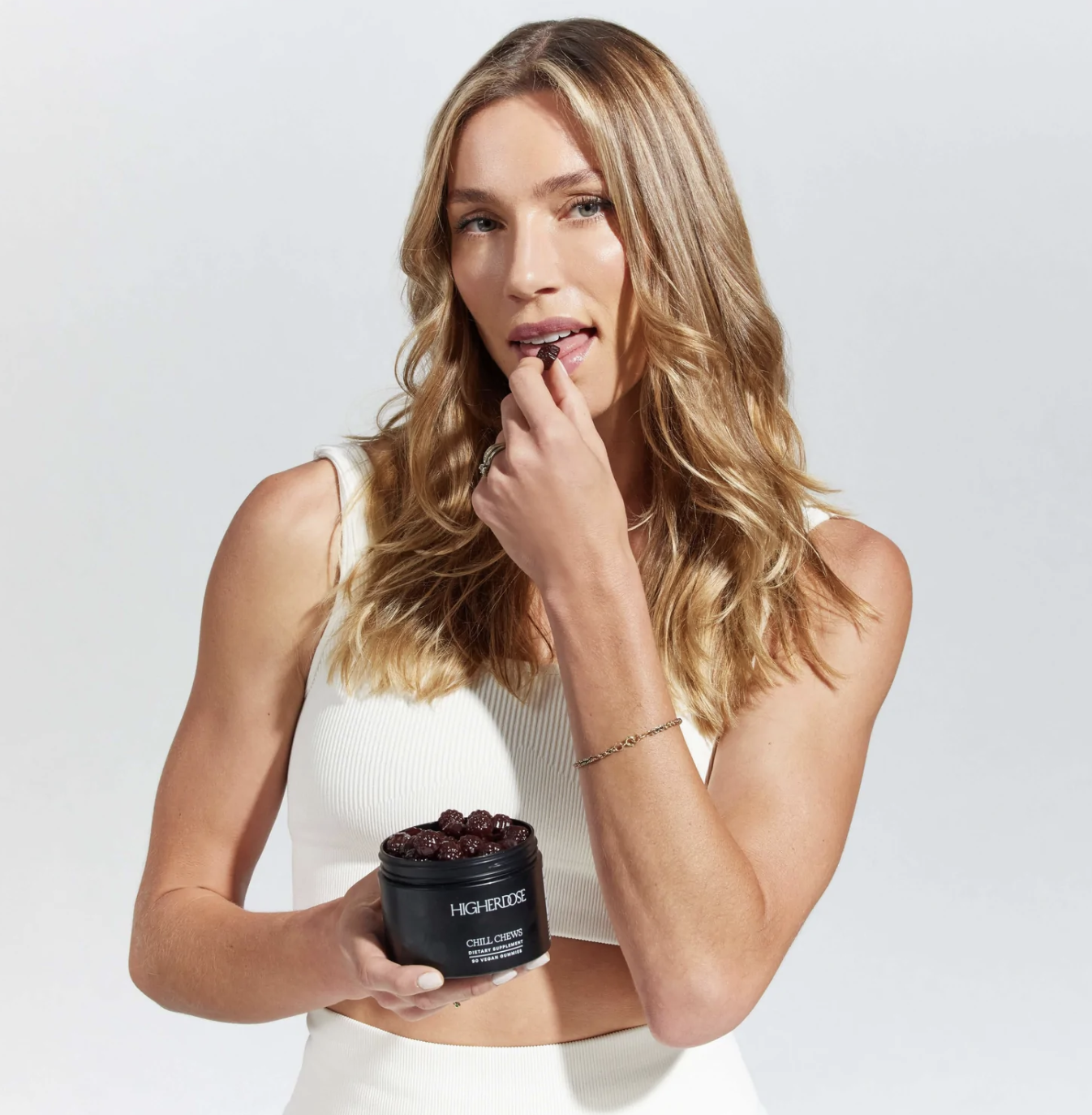Menopause brings many changes, including how your skin and hair feel and look. Hydrating your skin and finding effective hair care solutions are essential for maintaining your appearance. Simple adjustments in your skincare routine and the products you use can make a significant difference. This article will guide you through practical tips and effective products to help you manage these changes, ensuring that you remain radiant and healthy through menopause.
Embrace this new chapter by exploring tailored skincare and hair care tips that can help you look and feel your best. You have the power to address these challenges head-on and enhance your beauty beyond hormones.
Key Takeaways
- Hydration is key for combating dry skin during menopause.
- Effective solutions exist for managing thinning hair.
- Adjusting your beauty routine can help maintain confidence and health.
Understanding Menopause and Skin Changes
Menopause brings significant changes to your body, particularly affecting your skin and hair. Understanding these changes can help you take better care of your beauty needs during this phase of life.
Hormonal Impacts on Skin and Hair
During menopause, your body experiences a drop in estrogen levels. Estrogen plays a crucial role in maintaining skin elasticity and hydration. As levels decrease, you may notice your skin becoming drier and thinner. This can lead to fine lines and wrinkles, making your skin appear aged.
Your hair may also be affected, becoming thinner and weaker. Reduced estrogen can lead to hair loss or changes in hair texture. It’s common for women to see increased brittleness. Using hair care products with nourishing ingredients can help maintain hair strength.
Typical Menopausal Symptoms
Common symptoms associated with menopause can further impact your skin and hair. Hot flashes can cause sweating, which might irritate your skin. You may also experience mood swings, leading to stress. Stress can worsen skin issues, contributing to breakouts or skin sensitivity.
Many women report dry eyes during menopause. This is linked to hormone changes and can be uncomfortable. It’s important to hydrate and consider eye drops if you notice this symptom. Also, using a good moisturizer can help combat dry skin.
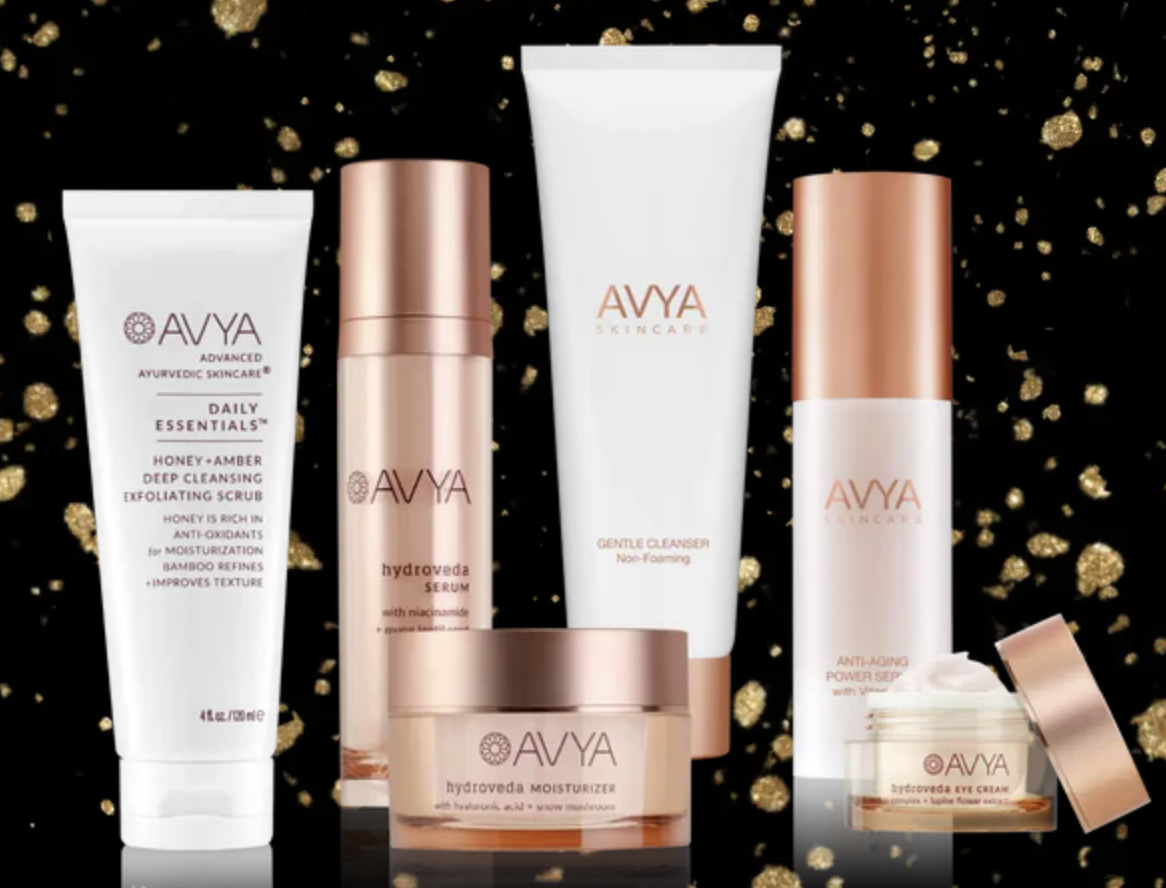
Avya Skincare
Luxurious, high-performance formulas are made with nutrient-rich botanicals that deliver medical-grade efficacy.
Overall, being aware of how menopause affects your skin and hair empowers you to find solutions tailored to your needs.
Hydrating Dry Skin During Menopause
During menopause, your skin often becomes drier due to hormonal changes. Addressing this issue involves selecting the right moisturizers and making lifestyle changes that support skin hydration.
Choosing the Right Moisturizers
When it comes to moisturizing, look for products specifically designed for dry skin. Ingredients like ceramides, hyaluronic acid, and glycerin are essential. They help to lock in moisture and strengthen the skin barrier.
- A cream-based moisturizer is often more effective than lotion, especially in cooler months.
- Apply moisturizer while your skin is still damp to maximize hydration.
Consider using products free from alcohol and fragrances, which can be irritating. Both day and night moisturizers should be rich in hydrating ingredients to provide continuous support for your skin throughout the day.
Primally Pure Soothing Cream
Moisture that melts into skin.
Apply a light layer to face, neck and décolletage while skin is still damp as the last step in your daily skincare routine.
Lifestyle Changes for Skin Hydration
In addition to using the right skincare products, lifestyle changes can significantly affect your skin’s hydration.
- Stay Hydrated: Drink plenty of water daily. Aim for at least 8 glasses to keep your skin plump.
- Humidifiers: Use a humidifier at home, especially during winter months. This adds moisture to the air and helps prevent your skin from drying out.
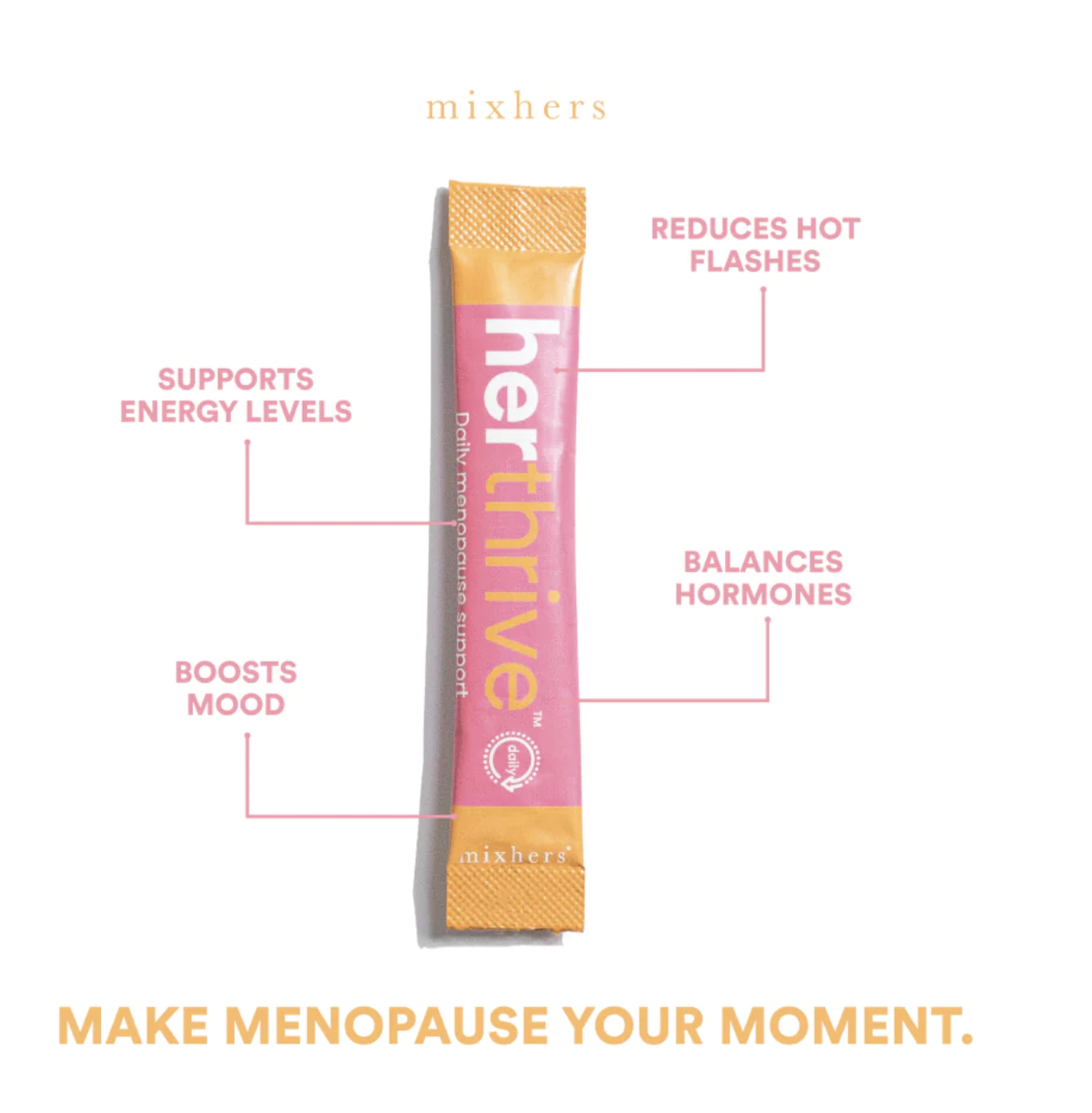
Her Thrive
Add to your water to help stop hormone fluctuations that lead to a variety of menopausal symptoms.
Incorporate foods rich in omega-3 fatty acids, such as walnuts and flaxseeds, into your diet. These can support skin health and enhance hydration from within.
Make sure to regularly check in with a dermatologist for tailored recommendations as your skin changes during menopause.
Managing Thinning Hair and Hair Loss
Thinning hair and hair loss can be distressing during menopause. Understanding effective treatments and nutritional needs can help you address these changes and promote healthier hair.
Effective Treatments for Hair Thinning
Topical treatments can significantly help manage hair loss. A popular option is minoxidil, available in a 5% formulation for women. Regular use can stimulate hair growth and reduce shedding. Consider using it as directed to see results.
Additionally, natural oils like rosemary oil can improve scalp health. Massaging this oil into your scalp enhances blood circulation, which nourishes hair follicles. You might also explore LED light therapy, which has shown promise in promoting hair growth.

Red Light Therapy Cap
Increases blood flow to the scalp, reduces hair shedding, and strengthen hair at the root.
For optimal results, combine treatments with a good hair care routine. Use sulfate-free shampoos and conditioners that are gentle on your hair and scalp. This helps maintain moisture and prevents further damage.
Nutritional Considerations for Hair Strength
A balanced diet plays a crucial role in maintaining hair health. Biotin (Vitamin B7) is essential for hair growth. Foods rich in biotin include eggs, nuts, and leafy greens.
Incorporate iron-rich foods like beans, lentils, and lean meats to improve blood flow to the scalp. Adequate protein intake from sources such as fish, poultry, or plant-based proteins can also strengthen the hair structure.
Omega-3 fatty acids found in fish, walnuts, and flaxseeds are important for scalp health. Staying properly hydrated by drinking enough water is vital, too, as hydration supports overall hair health.
Skincare Routines for Dry Eyes
Caring for dry eyes during menopause is essential for comfort and health. You can use gentle products and some home remedies to ease dryness and keep your eyes hydrated.
Gentle Eye Care Products
When selecting eye care products, focus on those that are specifically designed for dry eyes. Look for eye drops labeled as artificial tears. These drops are formulated to lubricate your eyes and provide relief from dryness. Choose preservative-free options if you use them frequently, as preservatives can cause irritation.
Also, consider hydrating gels or ointments for overnight use. These thicker products can create a protective barrier, allowing moisture to remain on the surface. Always check for hypoallergenic formulas if you have sensitive skin around your eyes.
In addition, using a gentle cleanser for your eyelids can help remove dirt without causing dryness. Cleansers should be free from harsh chemicals that might worsen irritation or dry skin.
Home Remedies for Eye Hydration
In addition to store-bought products, several home remedies can help relieve dry eyes. One popular approach is to use warm compresses. Simply soak a clean cloth in warm water, wring it out, and place it over your closed eyes for about 10 minutes. This can help stimulate tear production and soothe irritation.
Another effective remedy is staying hydrated by drinking plenty of water throughout the day. Aim for at least eight glasses to help maintain moisture levels in your body, including your eyes.
You can also try humidifiers in your living space. Keeping the air moist can significantly reduce dryness by preventing your eyes from becoming parched.
Incorporating these gentle care tips and remedies can greatly improve your comfort and eye health during this time.
Strategies for Maintaining Thick Hair
Maintaining thick hair during menopause involves knowing how to style without causing damage and understanding the essential vitamins that promote hair volume. Here are some effective strategies to keep your hair looking full and healthy.
Styling Without Damage
Choosing the right styling techniques is crucial for preserving hair thickness. Opt for heat-free styles whenever possible to prevent hair damage. For instance, use braids or buns to create waves without heat. When you must use heat, apply a quality heat protectant spray first.
Be mindful of the tools you use. Switch to a wide-toothed comb to avoid pulling and breaking hair. Additionally, limit the use of hair ties that can create stress on the hair shaft. Look for silk or satin hair ties as they are gentler.
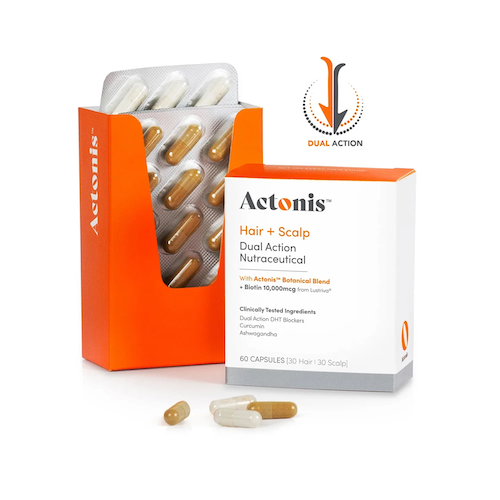
Hair & Scalp Supplements
Powerful hair growth supplement formulated to provide optimal nutrition for every stage of your hair cycle.
Also, consider reducing the frequency of washing your hair. Overwashing can strip natural oils, leading to dryness. Aim to wash your hair every 2-3 days, and use a moisturizing shampoo to keep it hydrated.
Essential Vitamins for Hair Volume
Vitamins play a vital role in maintaining hair health and thickness. Focus on incorporating foods that are rich in essential nutrients into your diet. Some key vitamins include:
- Biotin: Supports hair growth and strength. Eggs and nuts are great sources.
- Vitamin E: Improves blood circulation to the scalp. Find it in spinach and avocados.
- Vitamin D: Aids in the creation of new hair follicles. You can get it from sun exposure or fortified foods.
Consider taking a daily multivitamin that includes these vitamins, especially if your diet lacks variety. Additionally, omega-3 fatty acids are known to support scalp health, so include fish like salmon in your meals or consider a fish oil supplement.
By focusing on these strategies, you can help maintain the thickness and health of your hair during menopause.
Comprehensive Guide to Skincare Hydration
Hydration is crucial for maintaining healthy skin, especially during menopause. As hormone levels change, your skin may become drier and lose elasticity. Knowing how to effectively hydrate and care for your skin can make a significant difference.
Daily Skincare Rituals
Start each day with a gentle cleanser to remove impurities without stripping your skin’s natural oils. Choose a cleanser that is free from harsh chemicals and is hydrating.
After cleansing, apply a hydrating toner to prep your skin for better absorption of other products. Look for alcohol-free toners with soothing ingredients.
Next, use a serum packed with moisture-retaining components, such as hyaluronic acid. This will help plump your skin and lock in moisture.
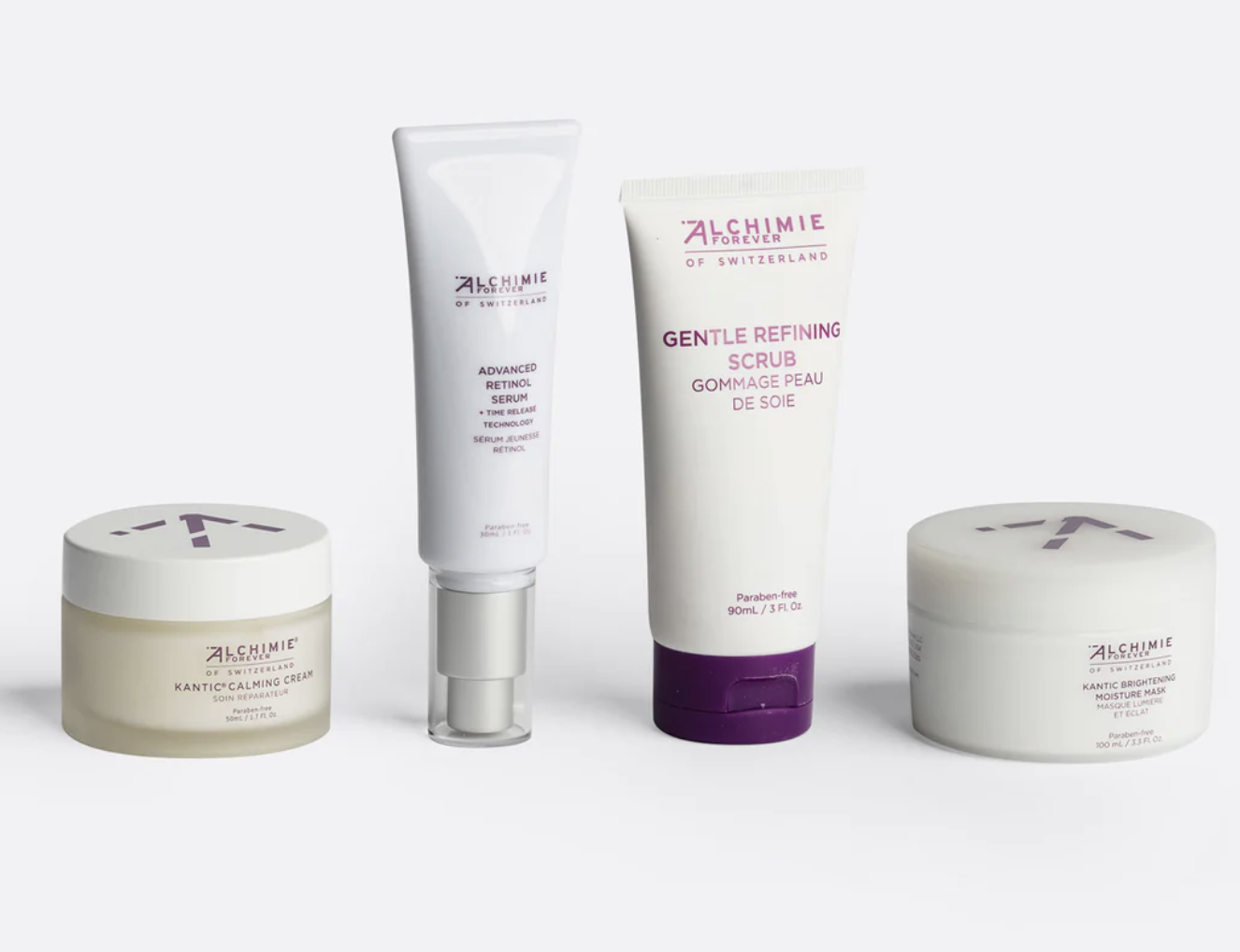
Alchimie Forever Skincare
Formulated in Switzerland, made with powerful botanical antioxidants to reduce the appearance of fine lines and wrinkles.
Follow this with a rich moisturizer. Opt for one that contains occlusive agents, such as shea butter or glycerin. Don’t forget to protect your skin with sunscreen every day, as UV rays can further dry out your skin.
Hydrating Ingredients to Look For
When selecting skincare products, focus on ingredients that provide deep hydration. Hyaluronic Acid is excellent for holding water in your skin, making it look more hydrated and youthful.
Glycerin is another powerful humectant. It draws moisture from the air into your skin, keeping it plump.
Consider products with Ceramides. They help restore the skin barrier, keeping moisture locked in and preventing dryness.
Look for Aloe Vera and Vitamin E, which soothe and nourish the skin. These ingredients are gentle and effective for mature skin.
By carefully evaluating your skincare products and following a hydrating routine, you can improve your skin’s moisture levels during menopause.
Conclusion
Navigating menopause can bring skin and hair challenges, but there are effective ways to address these changes.
For thinning hair, consider using topical treatments like 5% minoxidil, which can help reduce hair loss. Incorporating LED therapy may also support hair growth.
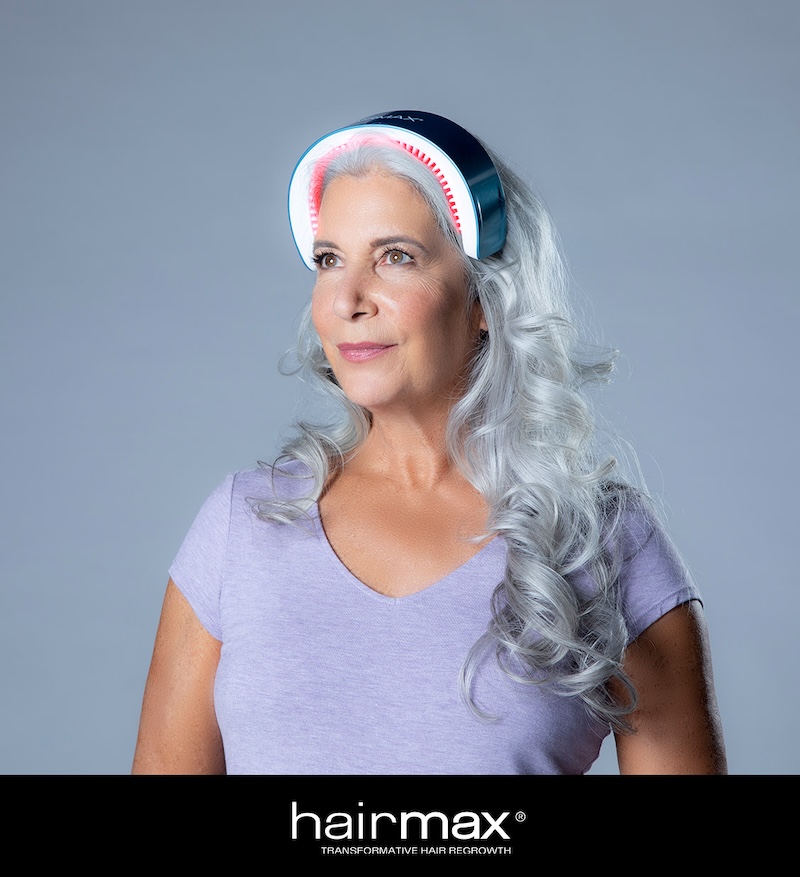
LaserBand 82 ComfortFlex
This powerhouse device targets hair loss by delivering focused laser energy to your follicles.
To combat dry skin, focus on hydration. Use creams with hyaluronic acid or shea butter to maintain moisture. Regularly applying a quality moisturizer can make a significant difference.
Don’t forget to pay attention to your eye care. Using hydrating eye drops can alleviate dryness and discomfort.
Maintaining a balanced diet rich in omega-3 fatty acids and antioxidants can support skin health from the inside out.
Incorporating these tips can help you embrace the changes menopausal transition brings. It’s about prioritizing your skincare and hair care for a healthy, glowing appearance.



